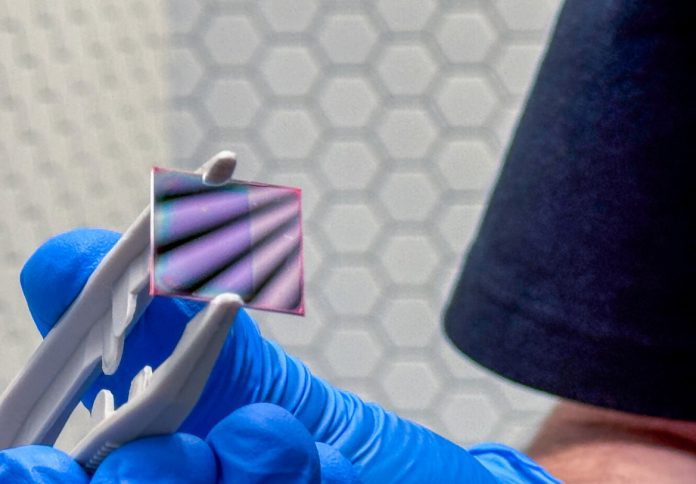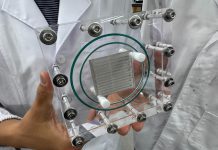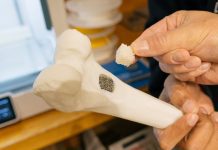
Researchers from RMIT University and CSIRO have developed a quantum battery device that lasts 1,000 times longer than previous prototypes, marking a major step forward in the experimental field of quantum energy storage.
Quantum batteries, unlike conventional batteries that store energy through chemical reactions, harness the principles of quantum mechanics – specifically superposition and electron-light interactions – to enable faster charging and potentially higher energy density.
The new study, published in PRX Energy, reports a breakthrough in extending the lifetime of these theoretical energy storage devices.
The best-performing quantum battery in the study was able to retain energy for microseconds – 1,000 times longer than earlier demonstrations, which were limited to mere nanoseconds.
“While we’ve addressed a tiny ingredient of the overall piece, our device is already much better at storing energy than its predecessor,” said RMIT PhD candidate Daniel Tibben, a co-author of the study. “We’re inching closer to a working quantum battery.”
Previous experiments had demonstrated extremely fast charging capabilities, but these early devices struggled with rapid discharge, losing their stored energy almost instantly.
In contrast, the RMIT-led team built and tested five new devices that showed significantly improved performance when two specific energy levels were perfectly aligned, allowing for more stable energy retention.
Professor Daniel Gómez, RMIT chemical physicist and senior author of the study, said the findings establish a solid foundation for future designs.
“While a working quantum battery could still be some time away, this experimental study has allowed us to design the next iteration of devices,” he said. “It’s hoped one day quantum batteries could be used to improve the efficiency of solar cells and power small electronic devices.”
The study also included contributions from Dr James Quach, CSIRO Science Leader and co-author of the paper.
“Australia is leading the way in experimental quantum battery research and this work is a significant advancement,” Quach said.
Gómez and his team are now working with industry partners to co-develop the next generation of prototypes.
The research was conducted at RMIT’s Micro Nano Research Facility and received support from the Australian Research Council, the European Union, and an RMIT University Vice-Chancellor’s Senior Research Fellowship.
The study, titled Extending the self-discharge time of Dicke quantum batteries using molecular triplets, includes co-authors Daniel Tibben, Francesco Campaioli, and Daniel Gómez, and is available in PRX Energy.



















